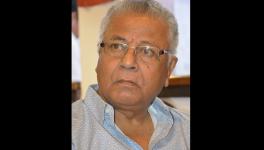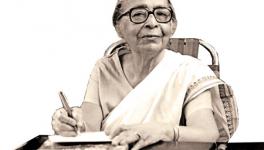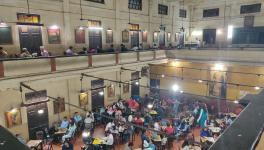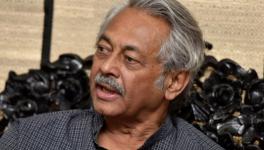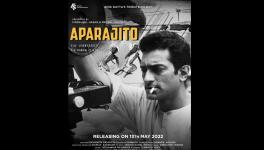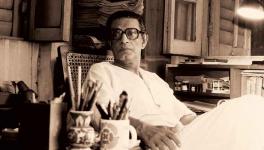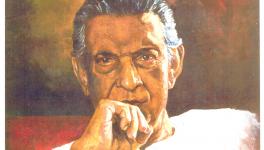Sankar: From ‘Great Unknown’ via ‘Chowringhee’ to Literary Colossus at 88
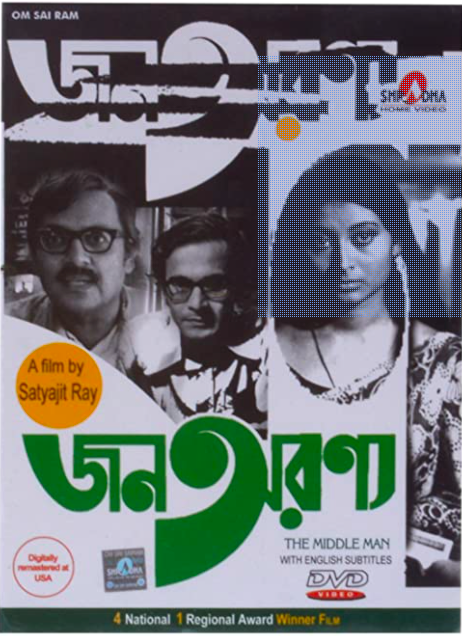
Kolkata: The small unkempt room, in a flat on South Kolkata’s Bondel Road, had books piled everywhere, perhaps reflective of a writer’s restless mind. Several racks of well-thumbed books overflowed onto a table littered with writing instruments and a pair of comfortable looking sofa chairs.
Welcome to the writer’s den where famed novelist Sankar (Mani Sankar Mukherji), author of such best-selling works as ‘Kato Ajanare’ (The Great Unknown), ‘Chowringhee’, ‘Seemabaddha’ (Company Limited) and ‘Jana Aranya’ (The Middleman), sits and spins stories based on the myriad characters he has met and the society in which they live, into books.
His works have gripped millions of readers and have been translated into several languages including English, Hindi, Malayalam, Gujarati, French and Spanish.
Mukherji, who turned 88 earlier this month, is going through the fresh-off-press advance copies of the English translation of his book ‘Swami Vivekananda: The Feasting, Fasting Monk’, where he delves into both the human and spiritual life of the Hindu monk.
The book, which was written earlier in Bengali, describes not only Vivekananda’s missionary life, but also his love for tea, mutton and ‘chorchori’ (spicy mixed vegetables), his skills in cooking ‘khichdi’ (rice cooked with lentils) and ‘pulao’ (aromatic rice) as well as his love for music.
“When I first wrote on Vivekananda, some monks criticised me (for not deifying the saint); however the late Swami Ranganathananda, head of the Ramakrishna Mission, came out in my support and said your credit lies in showing the human side of the Swami,” said the author in an interview to PTI.
While his revelations on Vivekananda’s culinary choices and his quotes from the Swami where he speaks of ancient Indian Brahmins eating beef, may not go down well with some, given the raging debate over the politics of food choices, the book itself looks headed for popular acclaim like most of his books.
Legendary movie-maker Satyajit Ray was an early fan of his and rang him up the day ‘Seembaddha’, a novel written by Mukerji, on the corporate rat race, with insights into Kolkata’s elite ‘Boxwallah’ culture, was published in Anandabazar Patrika’s Puja magazine, and said in his trademark baritone “please do not sell the movie rights of this novel to anyone before letting me know. I am interested”.
‘Seembaddha’, which forms a part of Ray’s widely acclaimed Calcutta trilogy along with ‘Pratidwandi’ (written by Sunil Gangopadhyay) and another of Mukherji’s novels ‘Jana Aranya’, won the Venice biennial award the year after it was released.
“Ray was a fast reader. He got the Puja magazine along with his newspapers in the morning and rang me up within hours of reading it,” said the Sahitya Akademi award winner.
Another of his fans was CPI(M) leader and West Bengal’s longest-serving Chief Minister Jyoti Basu, who once told him, “I keep reading you, but used to read you much more when I was in jail.”
Mukherji said though he used to write essays and satirical interviews for Bengali newspapers Anandabazar Patrika and Jugantar, his metamorphosis into an author was more as a tribute to his first boss.
“I used to work as a clerk in the 1950s with Noel Barwell, the last Englishman barrister practicing in Calcutta High Court. We had a very close relationship, with Barwell going out with me to movies and dinners… when he died, I wanted to do something for the man who thought so well of me,” the author recounted.
He had saved about Rs 400 and wanted to spend it on a statue or a painting of Barwell. Friends dissuaded him, explaining that statues and oil paintings would cost a far larger fortune.
An attempt to get a street named after the famous barrister also failed with a local politician whom he approached, reproaching him for asking independent India to name a street after an Englishman.
“Ultimately, I decided the best tribute would be a book on him – which led to ‘Kato Ajanare’, which was first serialised in the Bengali magazine ‘Desh’,” Mukherji said. He chose the pen-name Sankar, which was also his middle name as he embarked on his journey as a writer.
It is said that the brilliant but erratic film-maker Ritwik Ghatak tried to make a movie based on the book, but the project remained unfinished for lack of funds.
However, his second novel ‘Chowringhee’ was made into an Uttam Kumar-Supriya Devi blockbuster movie, and both the book and the film were popularly acclaimed. “After I had written my debut novel, some people had started whispering that I was a one-book author. I used to pray that this tag should not stick to me,” Mukherji said.
One day in the midst of a sudden shower as he stood in the awning of a shop, he kept looking at the bright neon signage of the Grand Hotel on Chowringhee street, and it dawned upon him that he knew the workings and intimate life of big hotels having interacted with virtually everyone at Kolkata’s Spencer Hotel, where Barlow used to stay.
The book ‘Chowringhee’ that predated Arthur Hailey’s ‘Hotel’ by three years, revolved around the larger-than-life Manager Marco Polo, debonair receptionist ‘Sata’ Bose and hostess Kaberi at the fictional Shahjahan Hotel, and gave a peep into the lives and business intrigues of Kolkata’s top industrial families who stayed or entertained there. It attained cult status and was translated into numerous Indian and foreign languages.
After ‘Chowringhee’ was published, Sir Badridas Goenka, a famous industrialist of his time and the first Indian to be chairman of Imperial Bank, rang up Mukherji seeking a meeting.
Refusing an offer to be driven in the tycoon’s car to his house, the still financially not-so-well-off author did make it by bus and on foot. Sir Badridas was waiting to ask whether Mukherji was being sarcastic when he started his book’s first paragraph with the protagonist Sankar saluting the statue of his brother Hariram Goenka “at whose feet were inscribed the words ‘Born June 3, 1862. Died February 28, 1935’”.
Many years later when Dunlop, the British firm he worked for was taken over by Sir Badridas’s grandson R P Goenka, Mukherji was hesitant to remain, remembering the industrialist’s question and found an alternative job with the Anandabazar Patrika.
However, R P Goenka told him, “Can you hang anyone (or a job) without a trial?” and eventually persuaded Mukherji to stay back. “He (Goenka) would introduce me as someone who “in his spare time, occasionally helps me’,” the author recounted with a twinkle in his eye.
Mukherji, who was appointed Sheriff of Kolkata, a titular post two years back, is still active as an author. Without naming his new book, he asked tantalisingly, “Did you know that the Ramakrishna monks who serve in the USA wear coats and pants as ordained by Swami Vivekananda? That Swami Chetanananda who is Minister of the Vedanta Society of St Louis, is the oldest monk in the order ?…”
Get the latest reports & analysis with people's perspective on Protests, movements & deep analytical videos, discussions of the current affairs in your Telegram app. Subscribe to NewsClick's Telegram channel & get Real-Time updates on stories, as they get published on our website.











